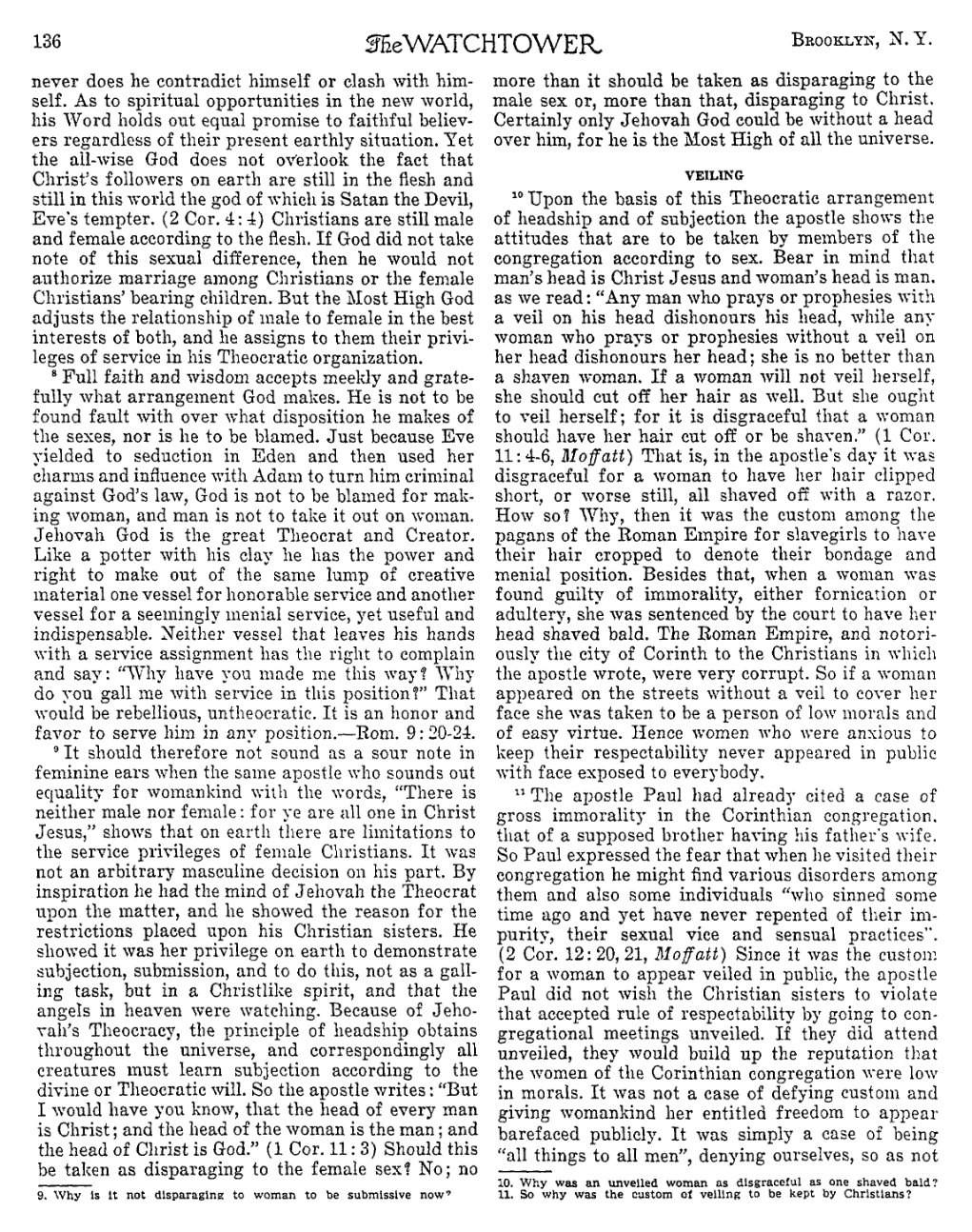more than it should be taken as disparaging to the male sex or, more than that, disparaging to Christ. Certainly only Jehovah God could be without a head over him, for he is the Most High of all the universe.
10 Upon the basis of this Theocratic arrangement of headship and of subjection the apostle shows the attitudes that are to be taken by members of the congregation according to sex. Bear in mind that man's head is Christ Jesus and woman's head is man. as we read: "Any man who prays or prophesies with a veil on his head dishonours his head, while any woman who prays or prophesies without a veil on her head dishonours her head; she is no better than a shaven woman. If a woman will not veil herself, she should cut off her hair as well. But she ought to veil herself; for it is disgraceful that a woman should have her hair cut off or be shaven." (1 Cor.
11: 4 - 6, Moffatt) That is, in the apostle's day it was disgraceful for a woman to have her hair clipped short, or worse still, all shaved off with a razor. How so? Why, then it was the custom among the pagans of the Roman Empire for slavegirls to have their hair cropped to denote their bondage and
menial position. Besides that, when a woman ,vas found guilty of immorality, either fornication or adultery, she was sentenced by the court to have her
head shaved bald. The Roman Empire, and notoriously the city of Corinth to the Christians in which the apostle wrote, were very corrupt. So if a woman
appeared on the streets without a veil to cover her face she was taken to be a person of low morals and of easy virtue. Hence women who were anxious to
keep their respectability never appeared in public with face exposed to everybody.
11 The apostle Paul had already cited a case of gross immorality in the Corinthian congregation, that of a supposed brother haying his father's wife. So Paul expressed the fear that when he visited their
congregation he might find various disorders among them and also some individuals "who sinned some time ago and yet have never repented of their impurity, their sexual vice and sensual practices". (2 Cor. 12: 20, 21, Moffatt) Since it was the custom for a woman to appear veiled in public, the apostle Paul did not wish the Christian sisters to violate that accepted rule of respectability by going to congregational meetings unveiled. If they did attend unveiled, they would build up the reputation that the women of the Corinthian congregation were low in morals. It was not a case of defying custom and giving womankind her entitled freedom to appear barefaced publicly. It was simply a case of being "all things to all men", denying ourselves, so as not
